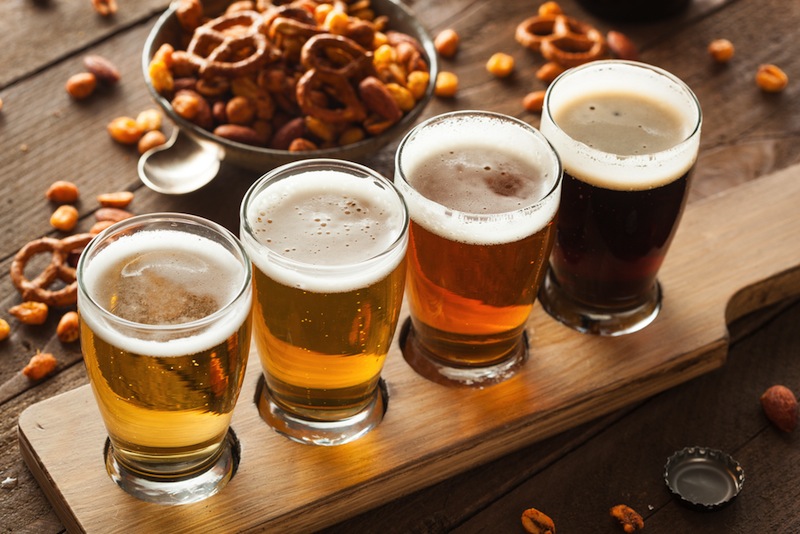Drinking Beer May Help You Read Certain Emotions

Get the world’s most fascinating discoveries delivered straight to your inbox.
You are now subscribed
Your newsletter sign-up was successful
Want to add more newsletters?

Delivered Daily
Daily Newsletter
Sign up for the latest discoveries, groundbreaking research and fascinating breakthroughs that impact you and the wider world direct to your inbox.

Once a week
Life's Little Mysteries
Feed your curiosity with an exclusive mystery every week, solved with science and delivered direct to your inbox before it's seen anywhere else.

Once a week
How It Works
Sign up to our free science & technology newsletter for your weekly fix of fascinating articles, quick quizzes, amazing images, and more

Delivered daily
Space.com Newsletter
Breaking space news, the latest updates on rocket launches, skywatching events and more!

Once a month
Watch This Space
Sign up to our monthly entertainment newsletter to keep up with all our coverage of the latest sci-fi and space movies, tv shows, games and books.

Once a week
Night Sky This Week
Discover this week's must-see night sky events, moon phases, and stunning astrophotos. Sign up for our skywatching newsletter and explore the universe with us!
Join the club
Get full access to premium articles, exclusive features and a growing list of member rewards.
Alcohol is known to impair people's judgment, but downing a beer may actually enhance one ability: A small new study suggests that imbibing may improve people's ability to recognize certain emotions, like happiness.
Though "many people drink beer and know its effects through personal experience, there is surprisingly little scientific data on its effects on the processing of emotional social information," study co-author Matthias Liechti, a professor of psychopharmacology at the University of Basel in Switzerland, said in a statement.
In the study, 60 people ages 18 to 50 drank either regular beer that contained alcohol or nonalcoholic beer, over the course of 15 minutes. The people in the study drank about 17 ounces (500 milliliters) of beer, on average. For the people in the group that was given regular beer, that amount of beer that was meant to make them drunk enough to potentially alter their ability to recognize emotions but not too drunk to perform tasks in the study.
The participants were unaware of whether they were drinking beer with alcohol or nonalcoholic beer, according to the researchers. About 30 minutes after the people drank the beer and began experiencing its effects, the researchers started their experiments. In one of them, the researchers showed the participants pictures of faces representing the six basic emotions — fear, sadness, disgust, happiness, anger and surprise — and asked them to identify which emotion each face represented. [Raise Your Glass: 10 Intoxicating Beer Facts]
It turned out that the people who were given regular beer were better at recognizing the faces that expressed happiness, compared with those who drank nonalcoholic beer, according to the findings, presented Sept. 19 at the annual meeting of the European College of Neuropsychopharmacology (ECNP) in Vienna and published in the journal Psychopharmacology.
"We found that drinking a glass of beer helps people see happy faces faster and enhances concern for positive emotional situations," Liechti said.
However, there were no other differences in how fast the people in the two groups recognized other emotions, according to the study.
Get the world’s most fascinating discoveries delivered straight to your inbox.
In other experiments conducted in the study, the researchers found that people who drank alcoholic beer expressed a greater desire to spend time in the company of other people than those who drank the nonalcoholic variety. This effect was more pronounced in women than in men. [Busted! 6 Gender Myths in the Bedroom & Beyond]
Participants who imbibed the alcoholic beer were also more interested in viewing sexually explicit images compared with the people who drank the nonalcoholic beer, and that effect was also more pronounced in women than in men, the researchers found.
The effects may have been more pronounced in women because consuming the same dose of alcohol may lead to different blood concentrations of alcohol in men and women, and thus may affect them differently, Wim van den Brink, a professor of psychiatry and addiction at the University of Amsterdam who was not involved in the study, said in a statement.
However, the authors of the new study noted that it had certain limitations. For example, the researchers used relatively low doses of alcohol in the study, which means that the findings may not apply to people who drink more alcohol than the doses used in the study.
Originally published on Live Science.
 Live Science Plus
Live Science Plus










